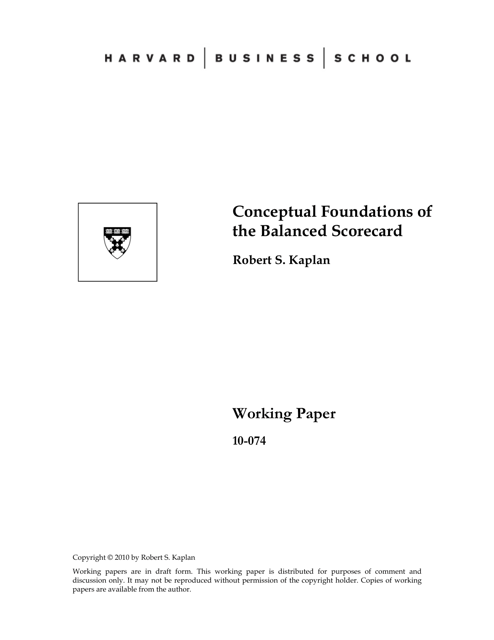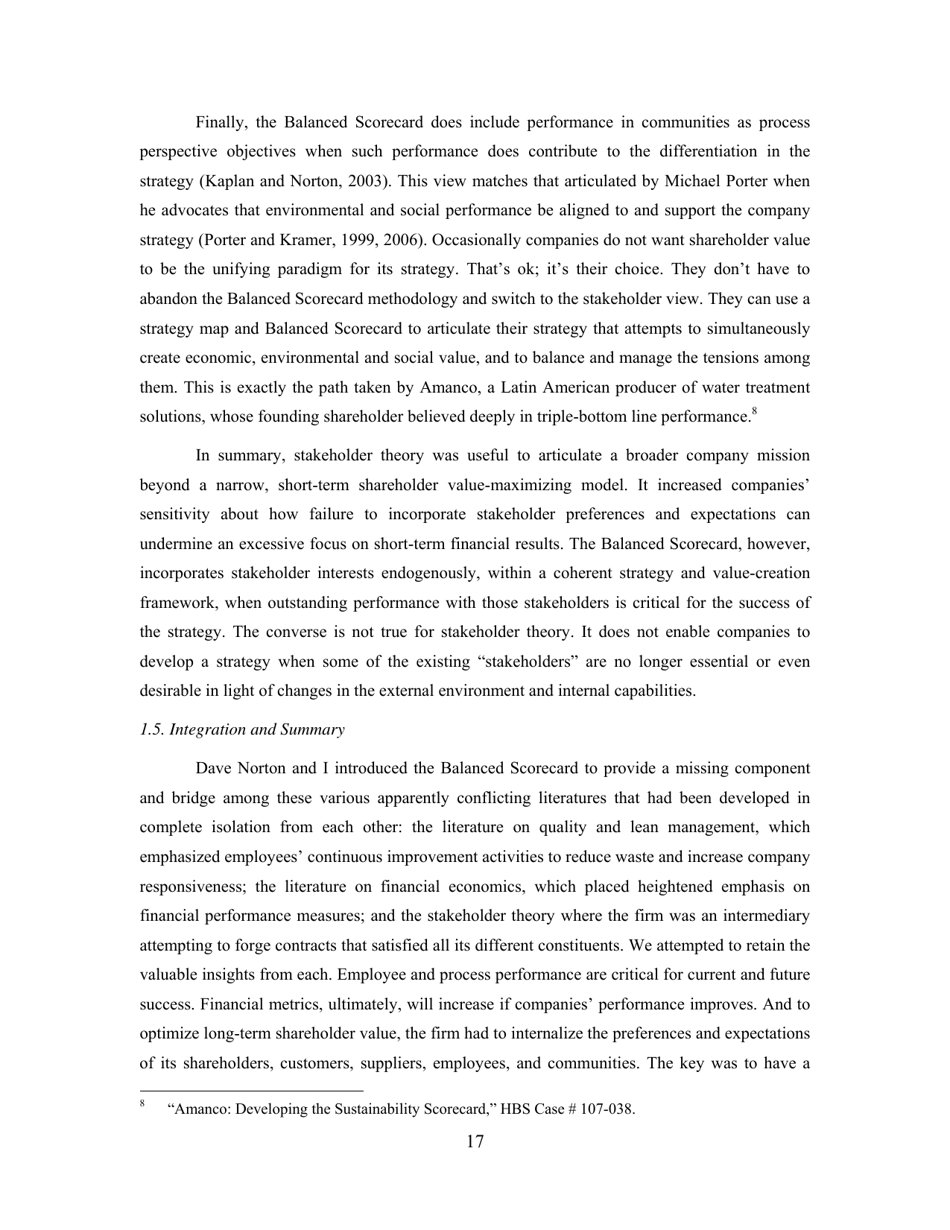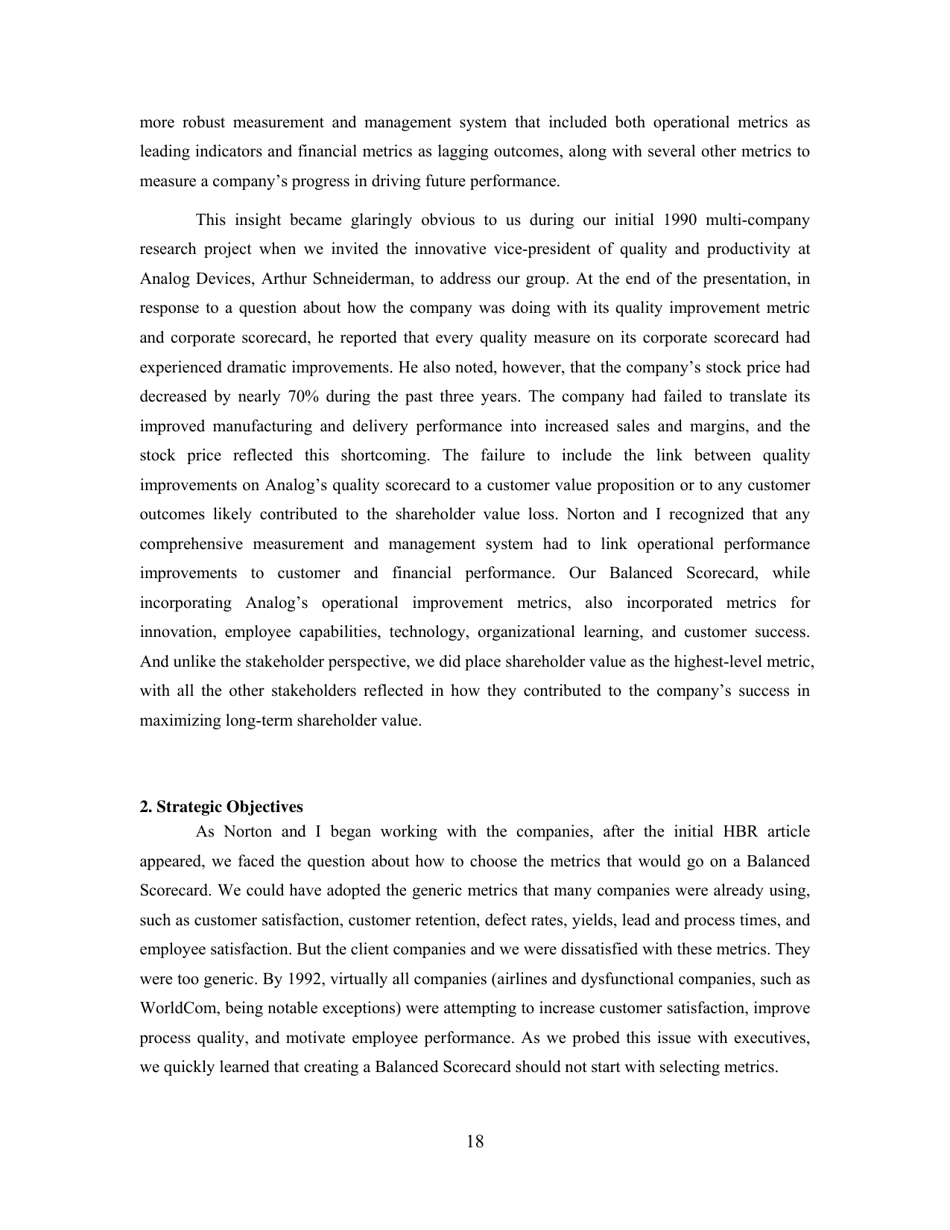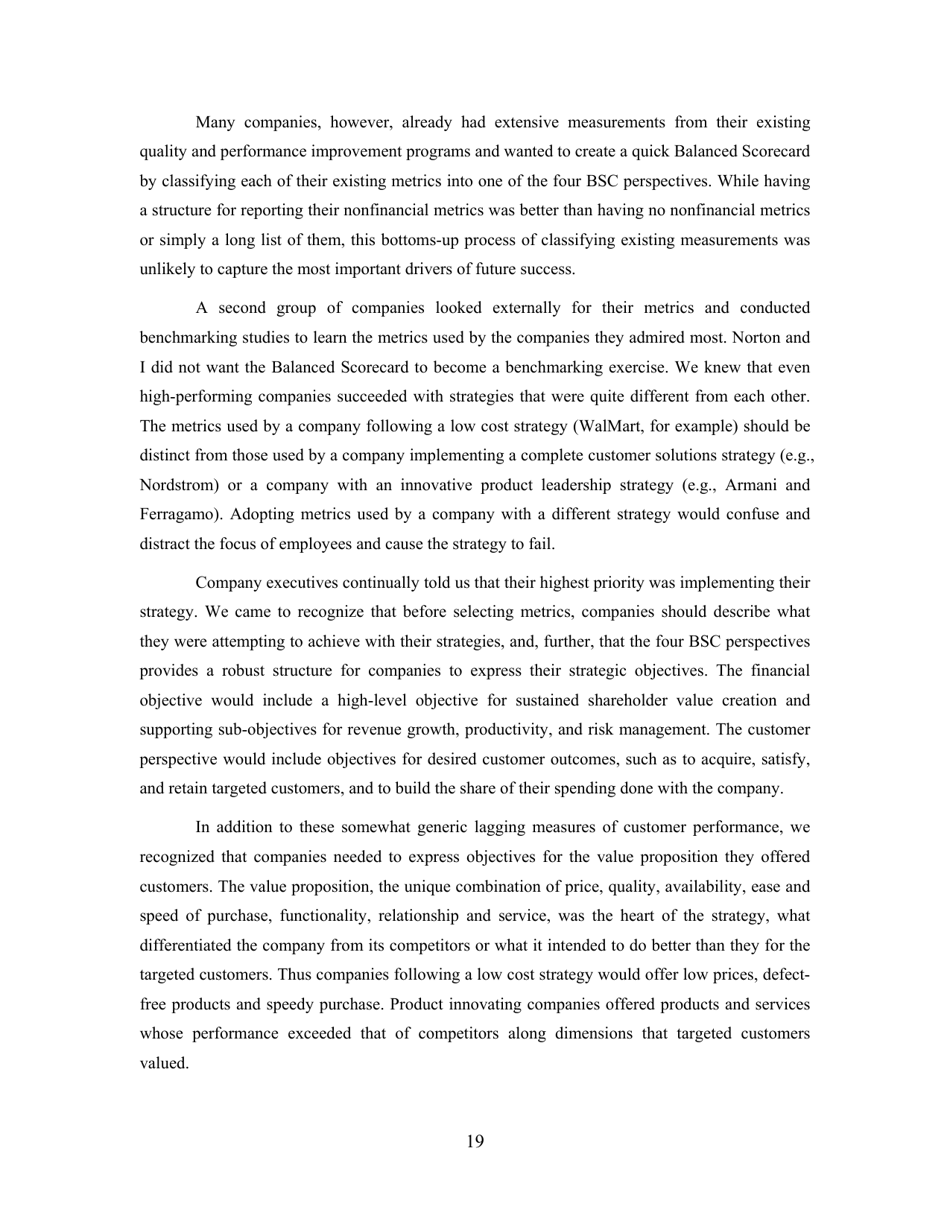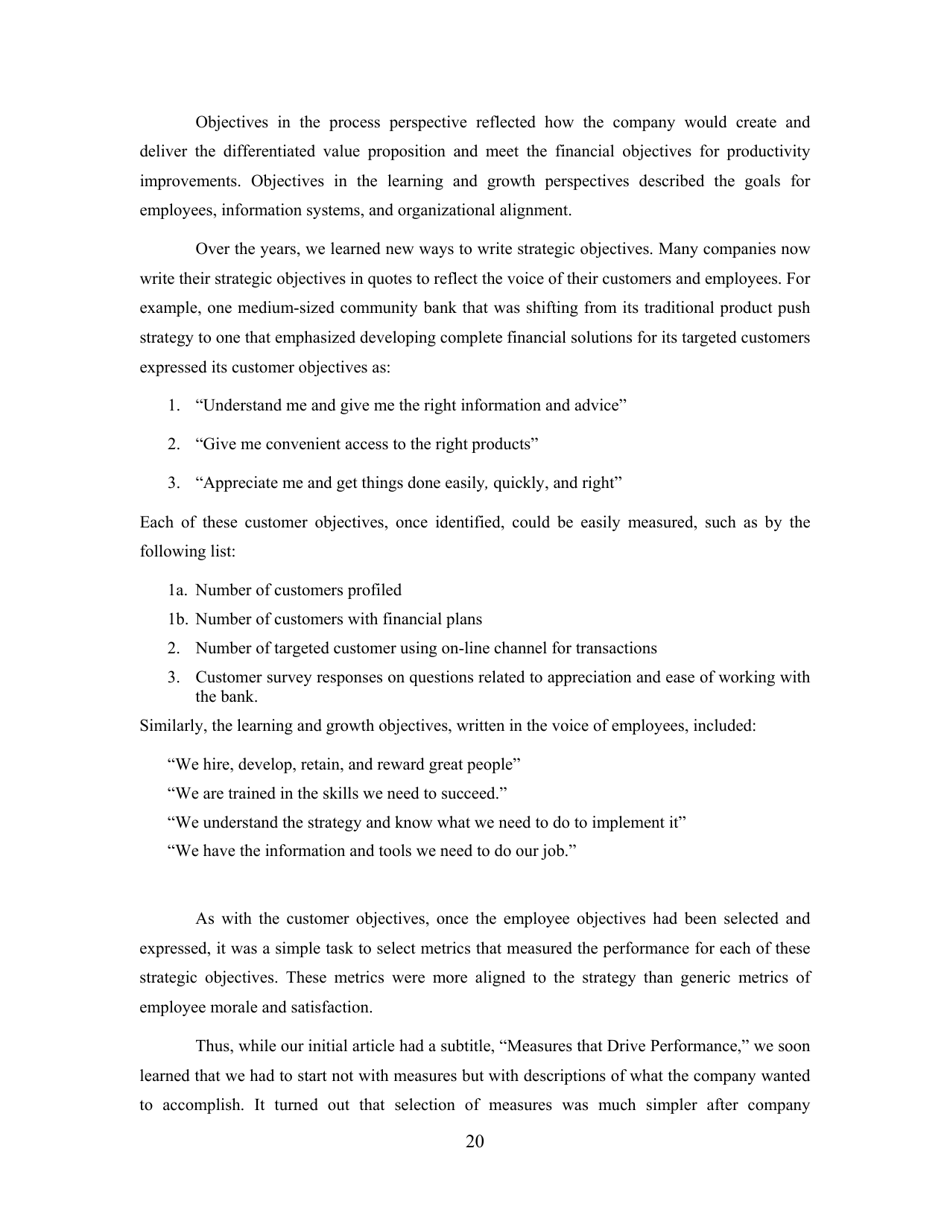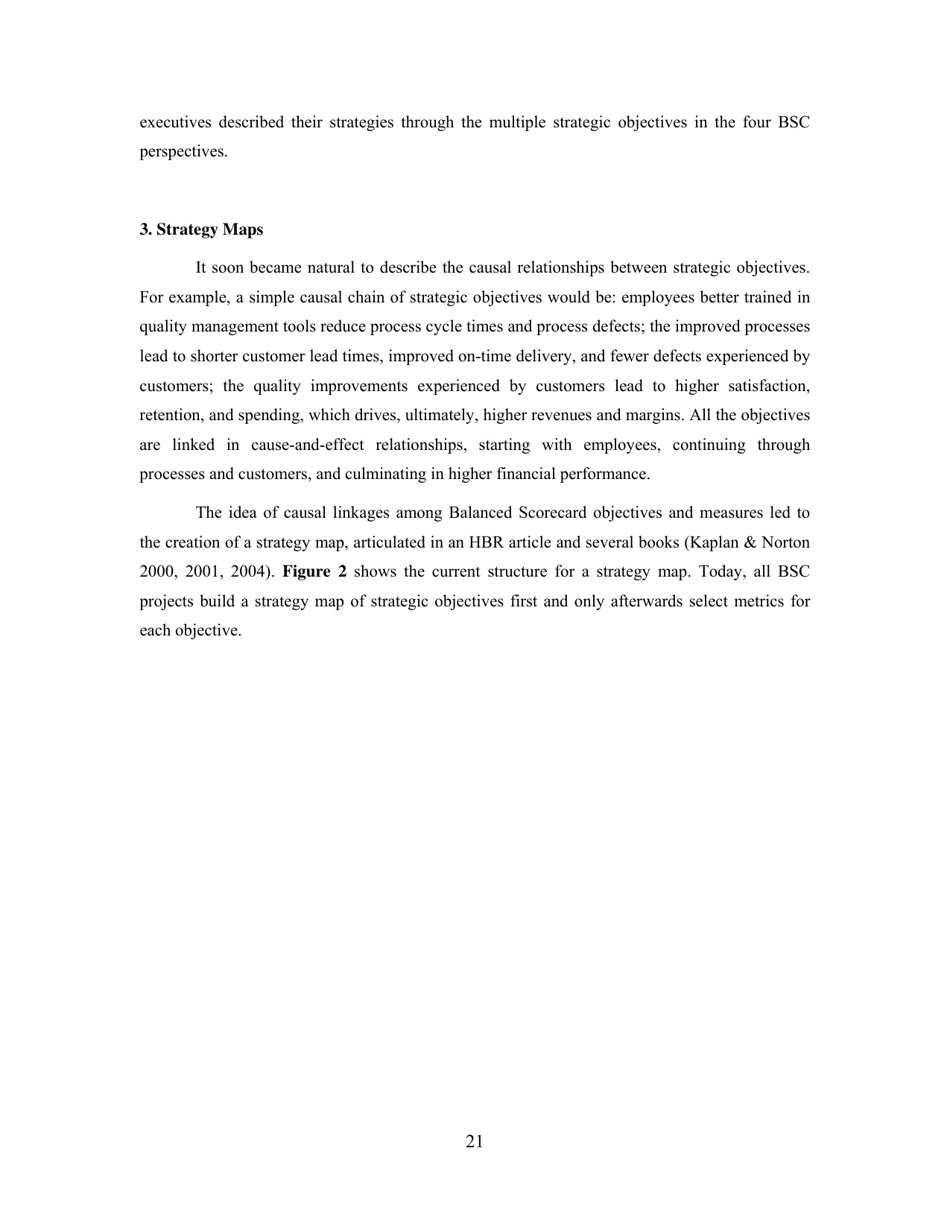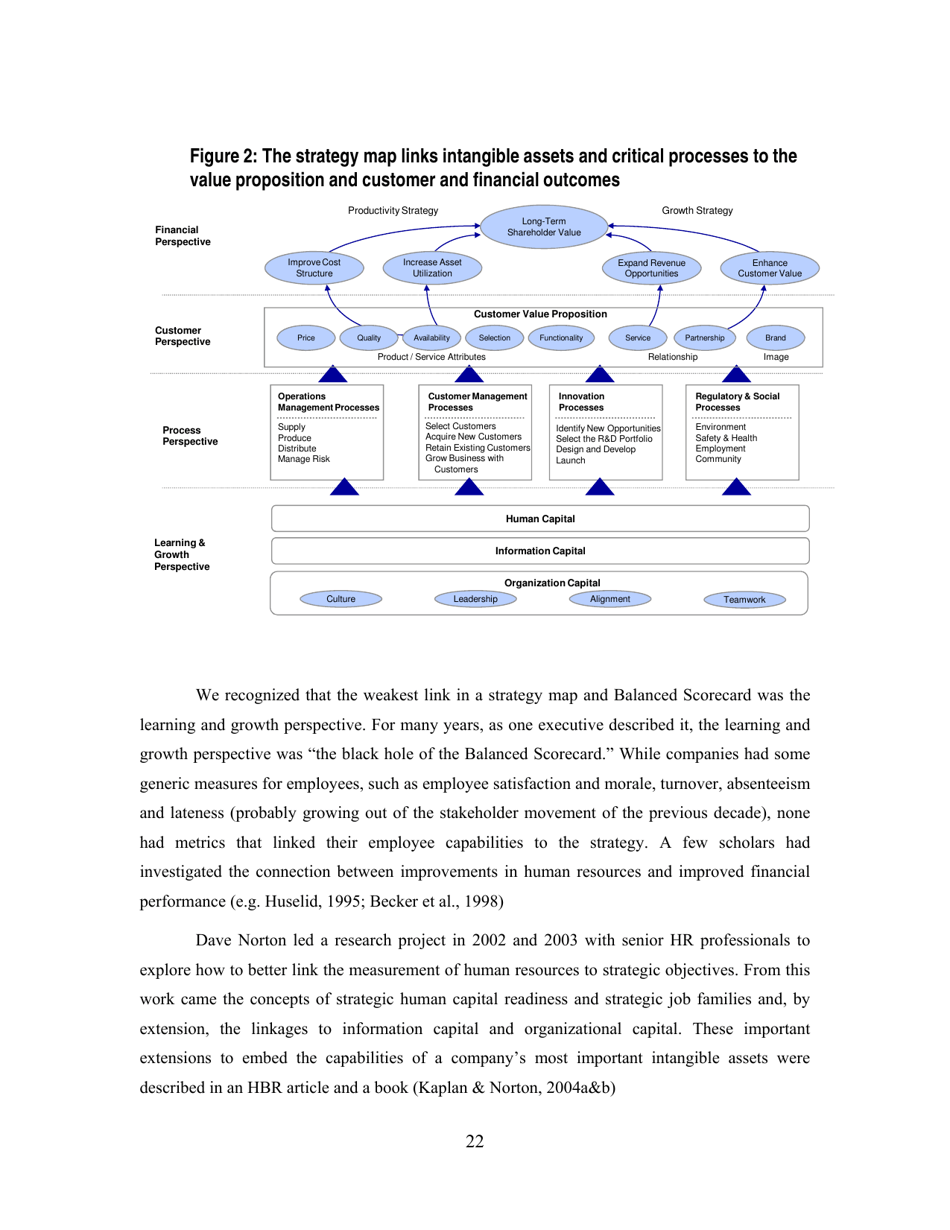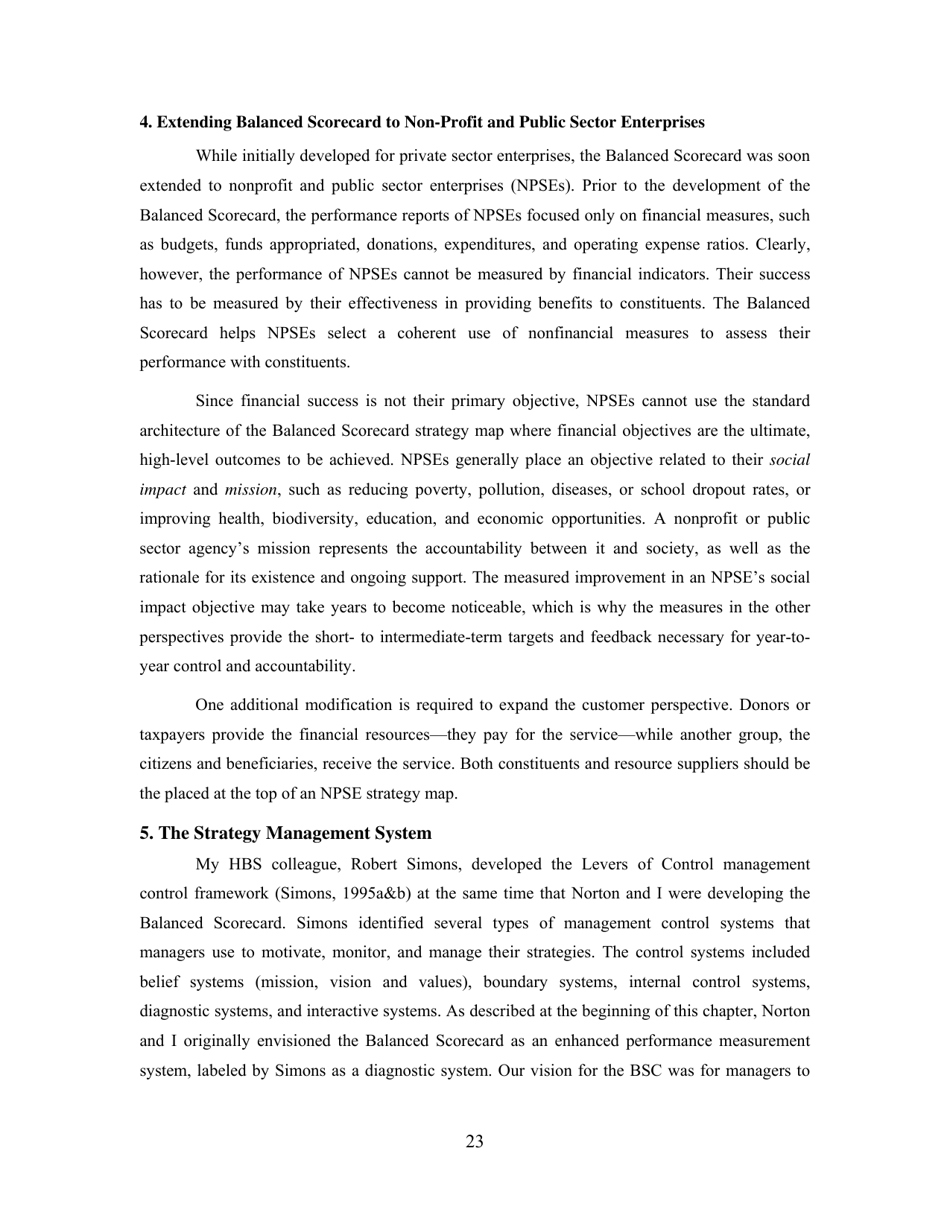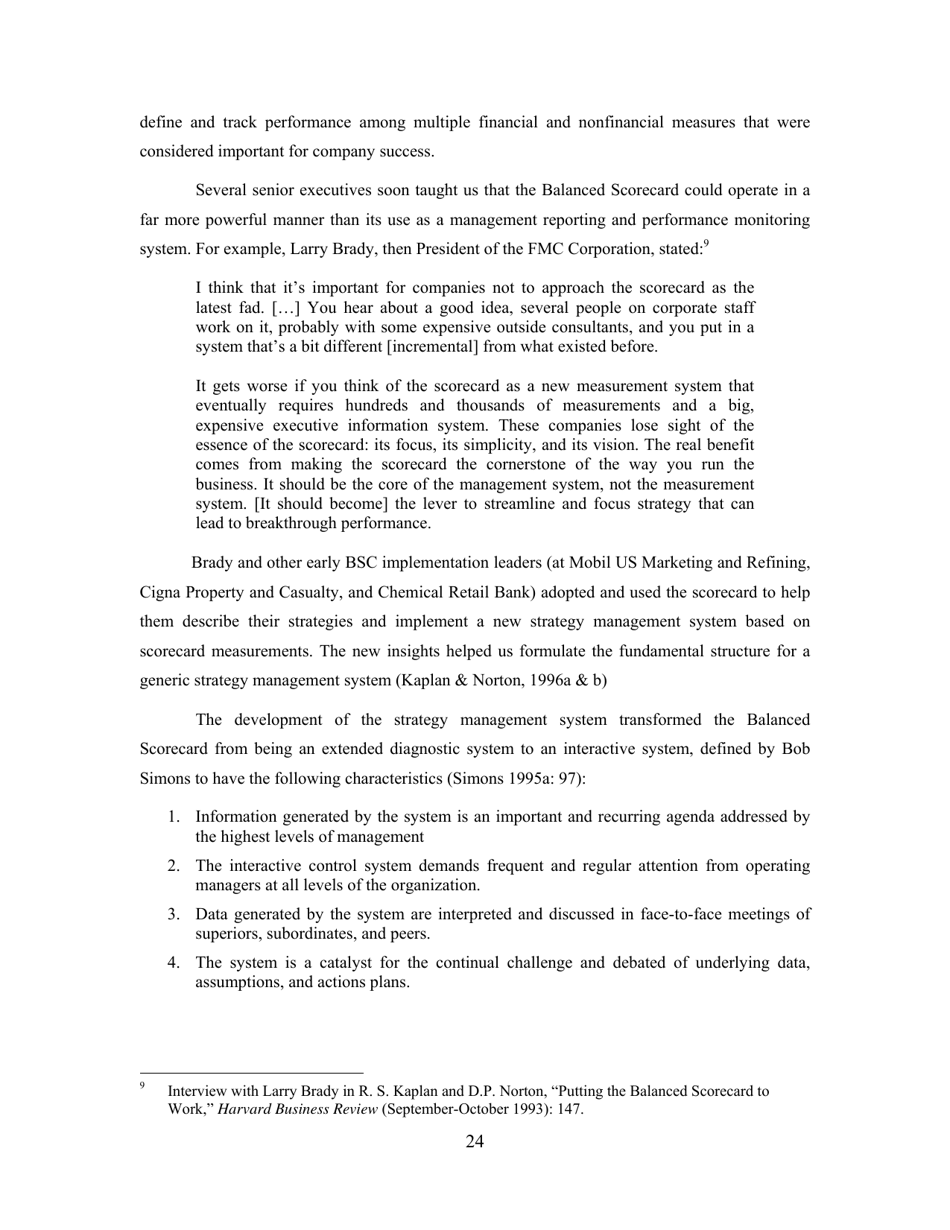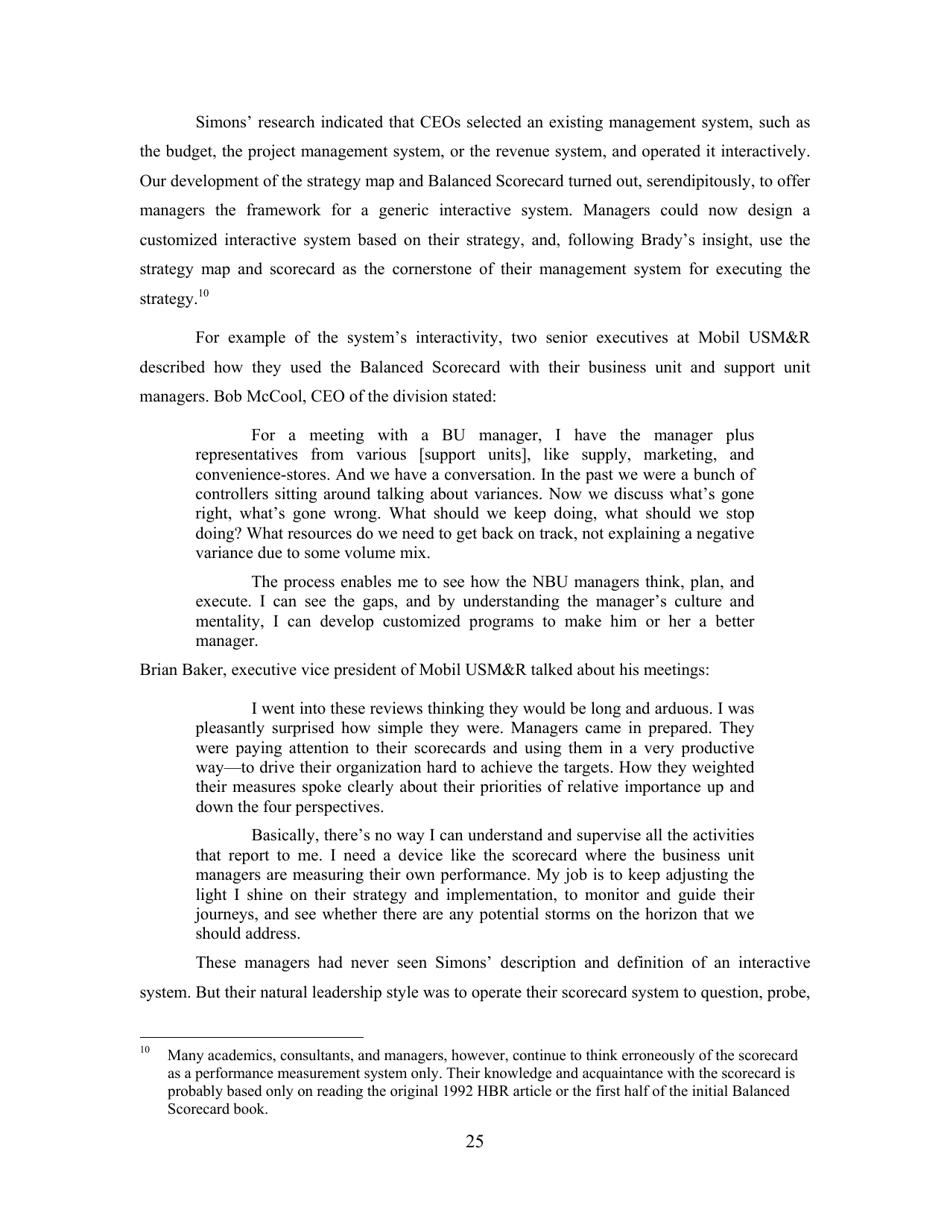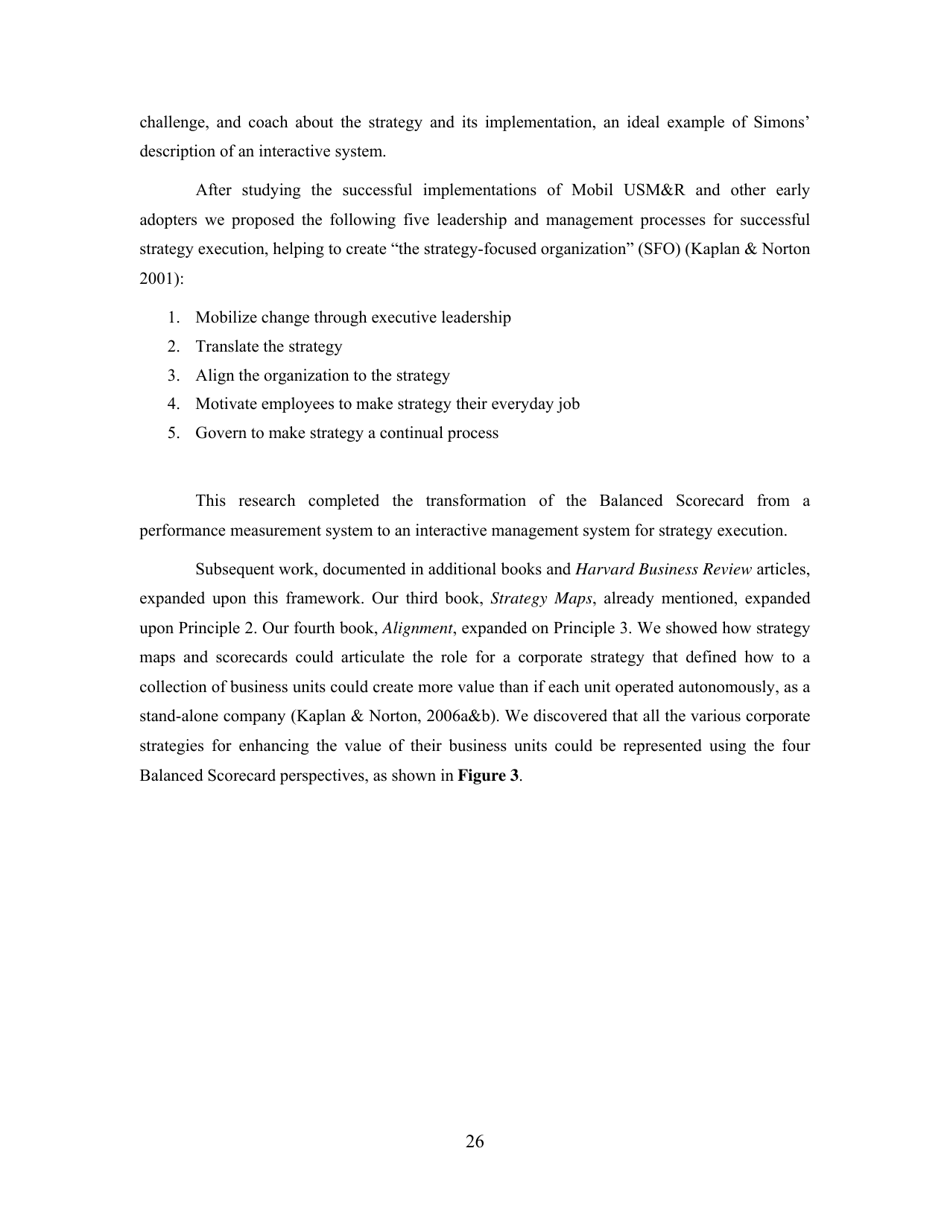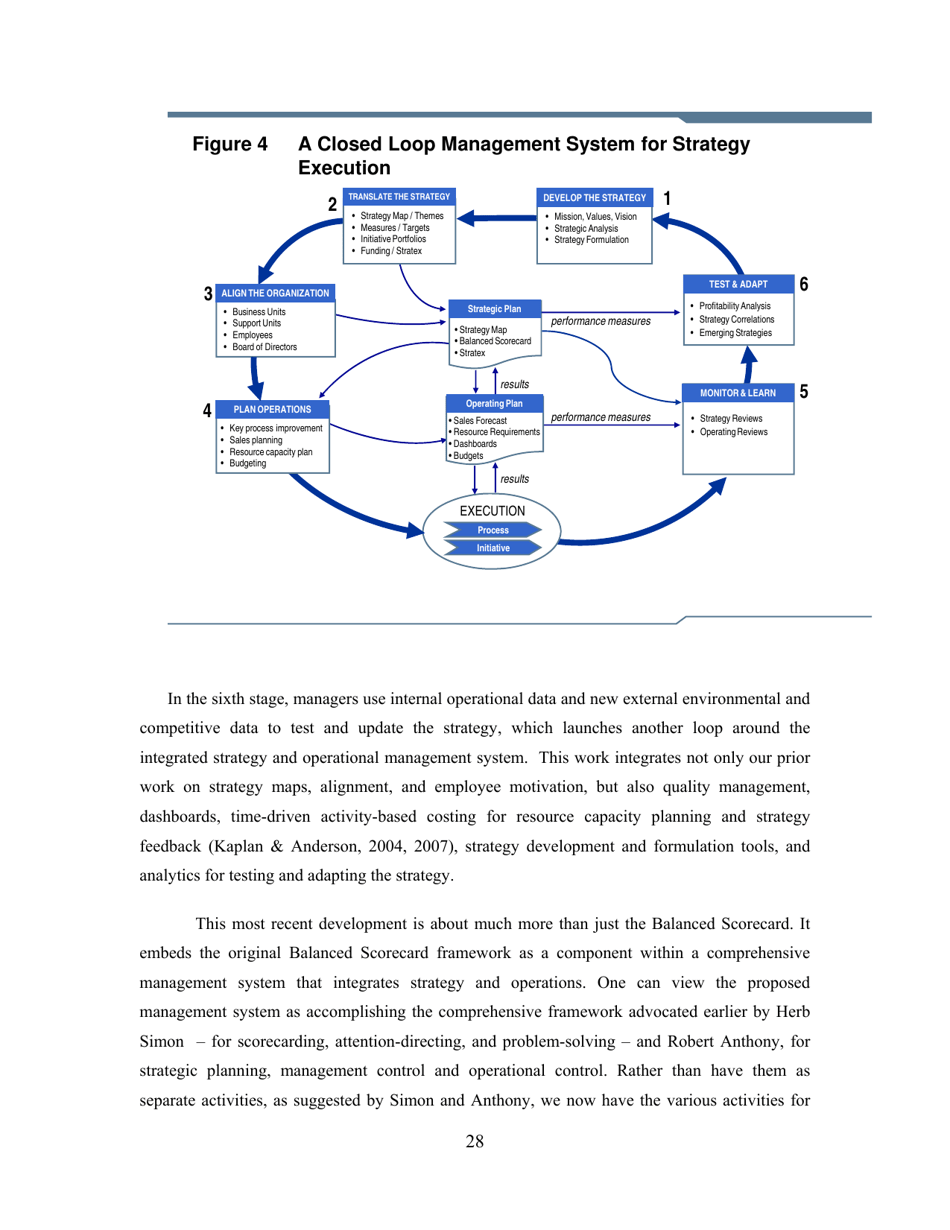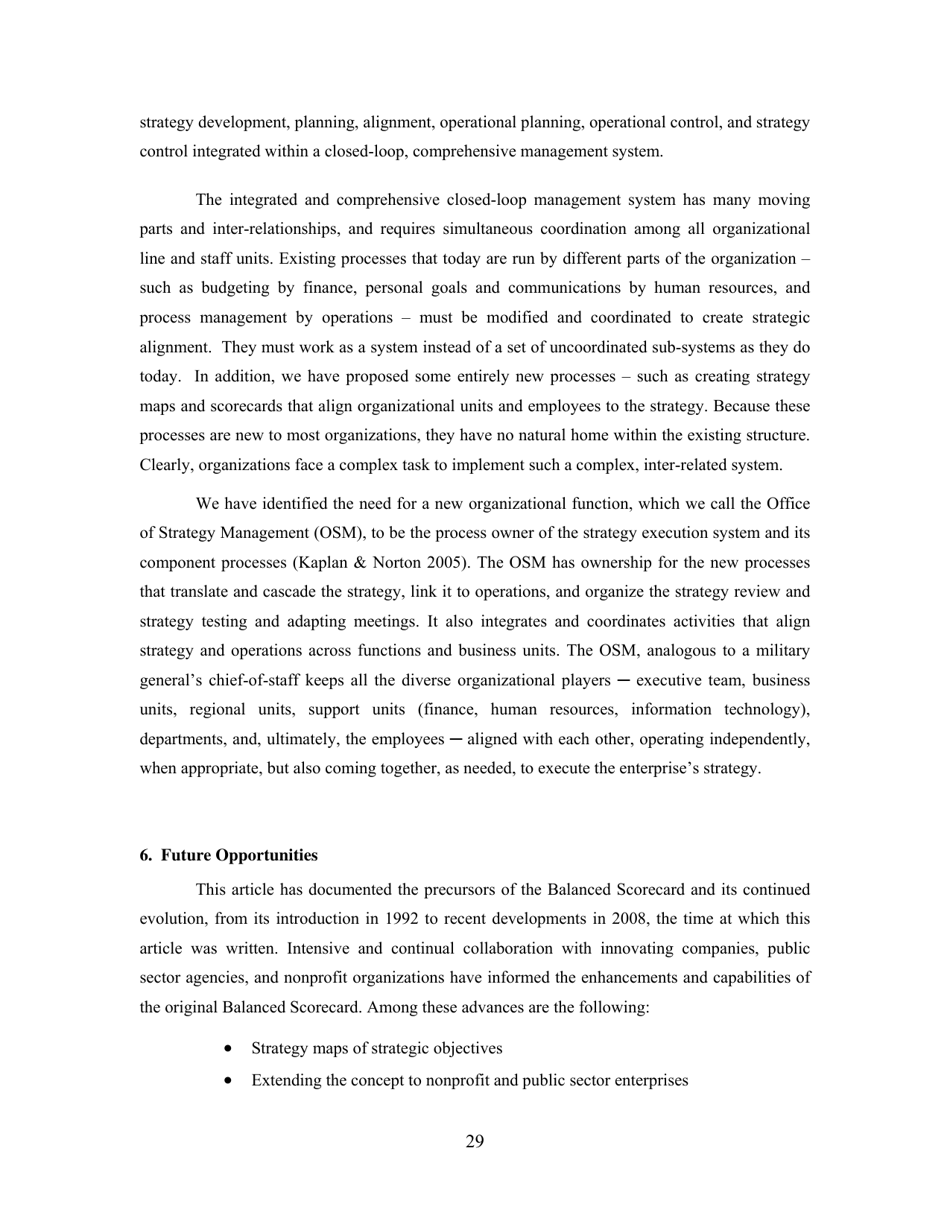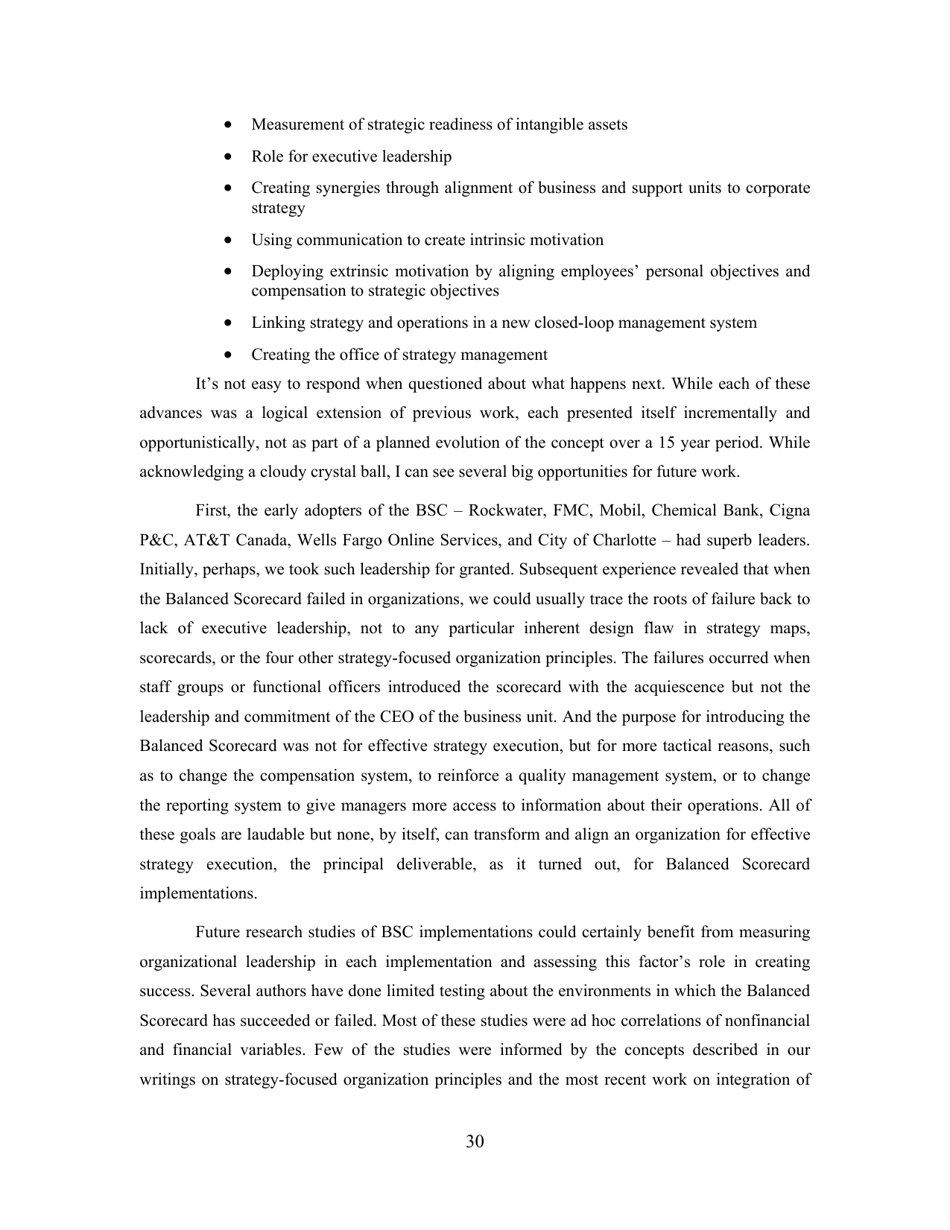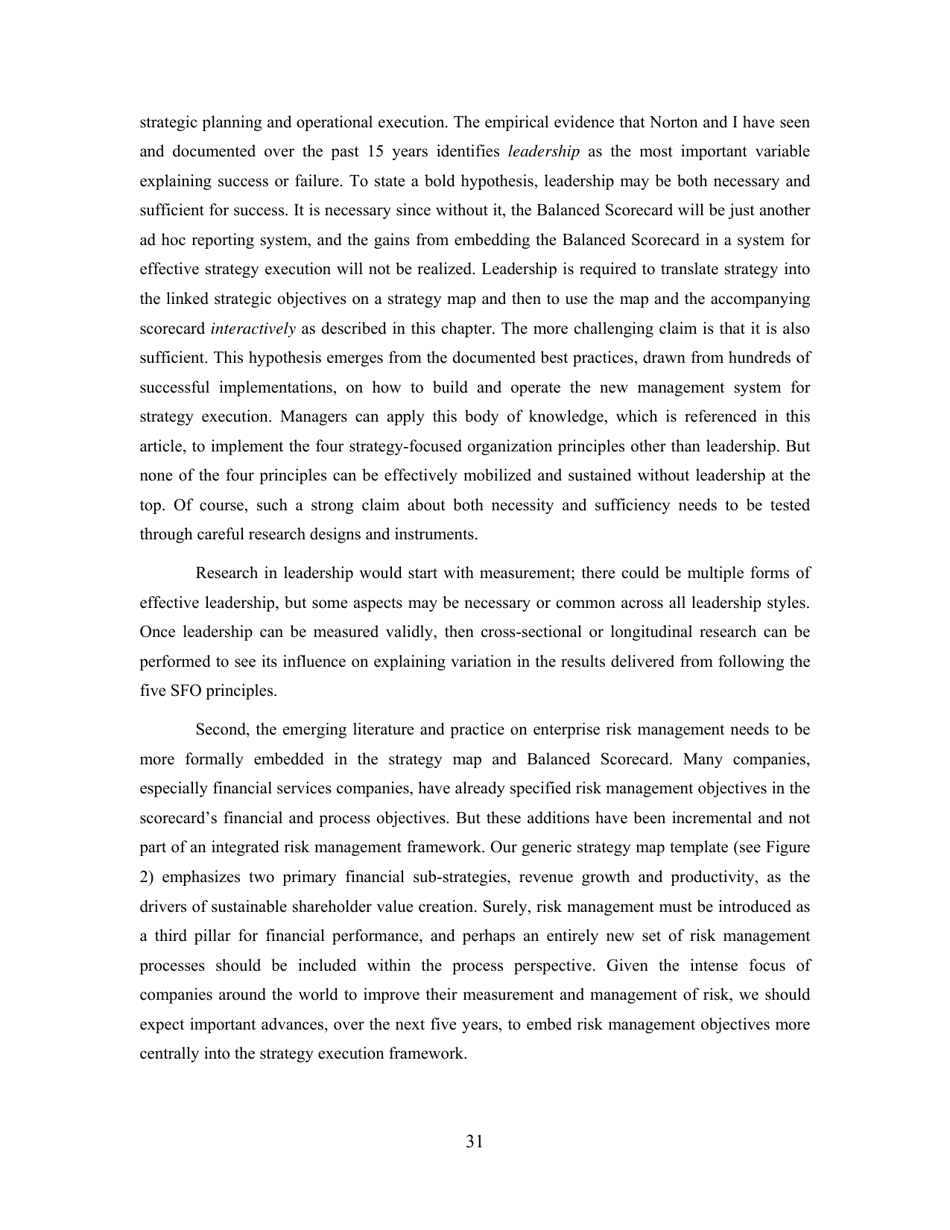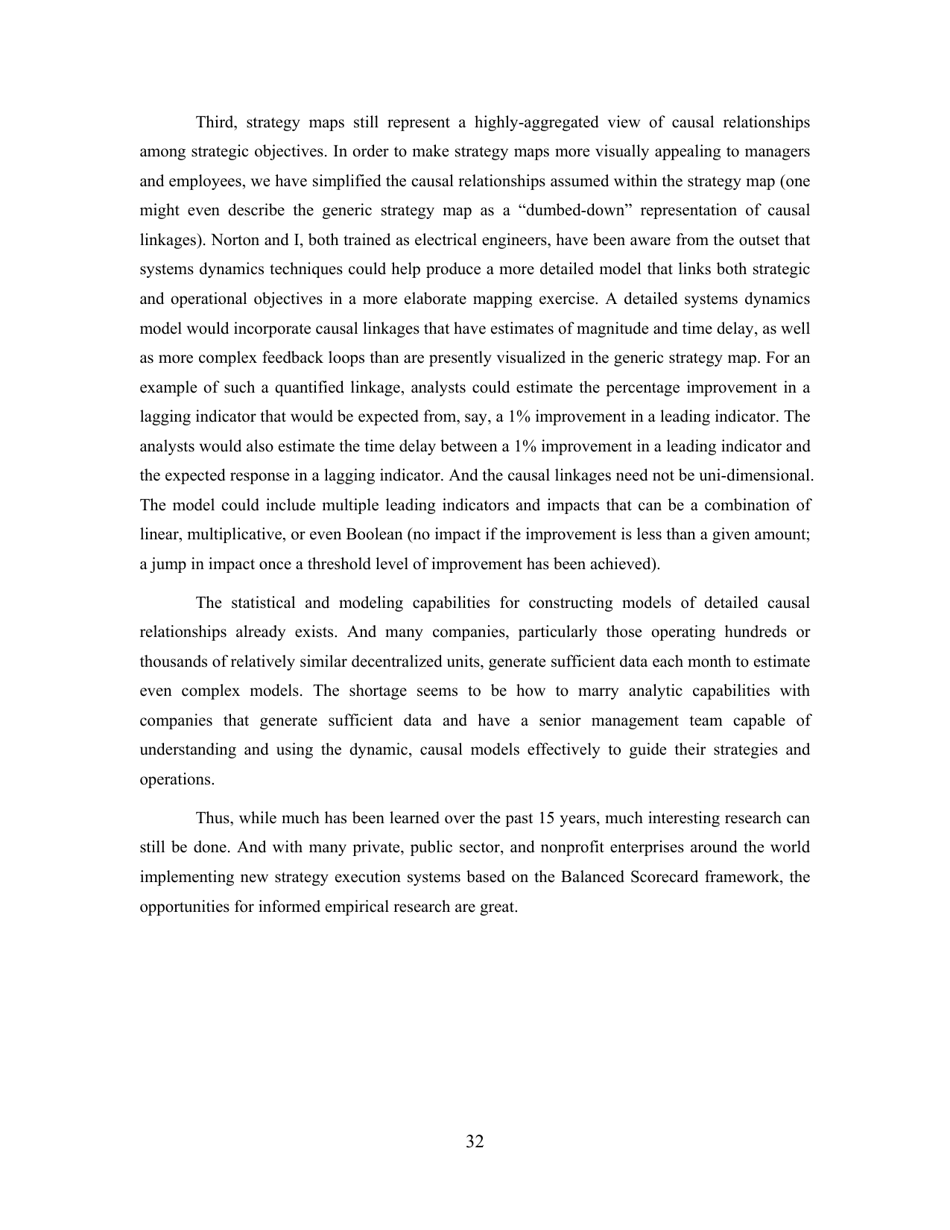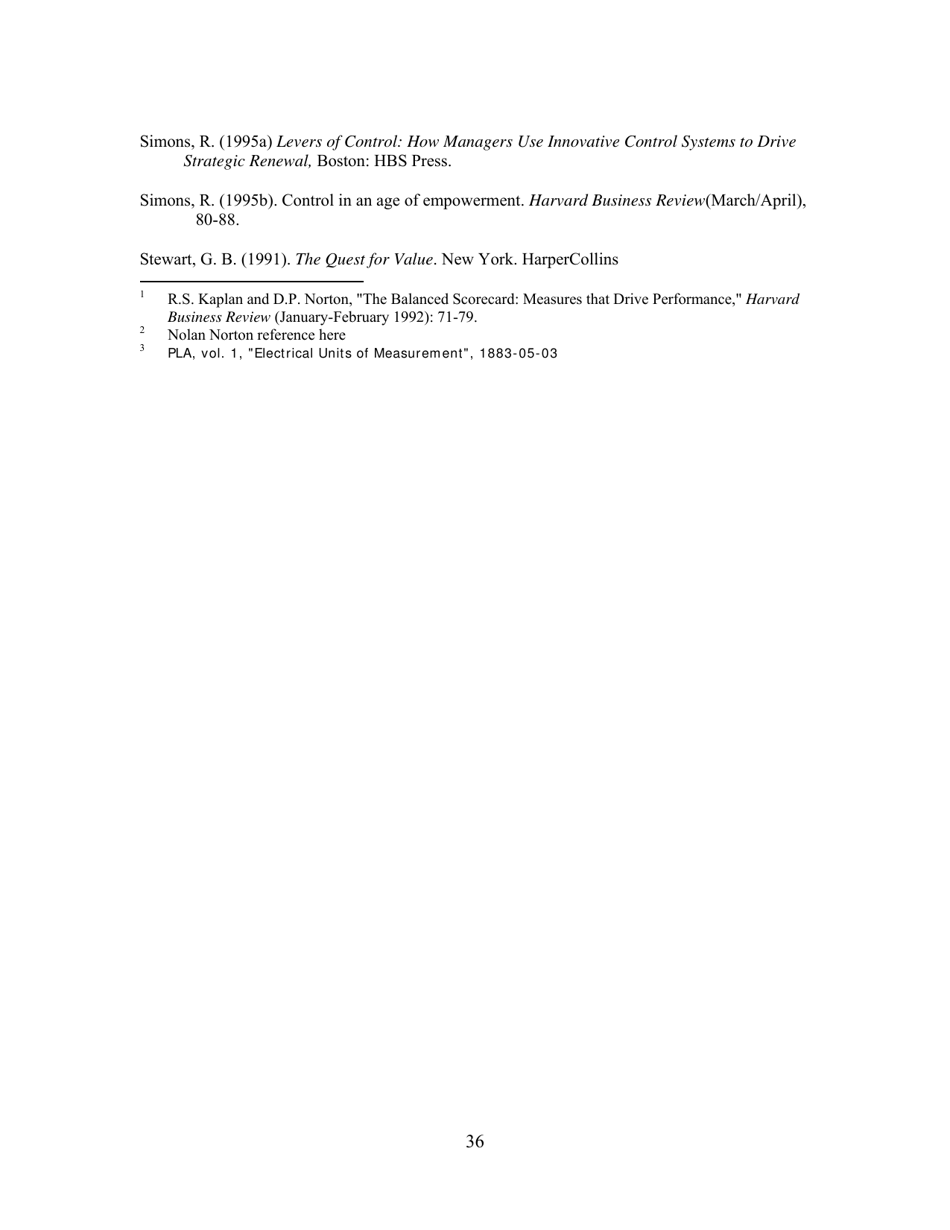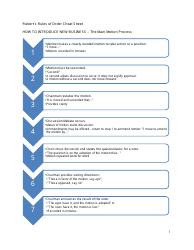Conceptual Foundations of the Balanced Scorecard - Robert S. Kaplan, Harvard Business School
The Conceptual Foundations of the Balanced Scorecard by Robert S. Kaplan, Harvard Business School, serves as a framework for measuring and managing organizational performance. It provides a holistic view by incorporating financial, customer, internal process, and learning and growth perspectives.
Robert S. Kaplan, a professor at Harvard Business School, filed the conceptual foundations of the Balanced Scorecard.
FAQ
Q: What is the Balanced Scorecard?
A: The Balanced Scorecard is a strategic performance management tool.
Q: Who developed the Balanced Scorecard?
A: The Balanced Scorecard was developed by Robert S. Kaplan and David P. Norton.
Q: What are the benefits of using the Balanced Scorecard?
A: Using the Balanced Scorecard can help organizations align their strategic objectives, measure performance, and improve decision-making.
Q: How does the Balanced Scorecard work?
A: The Balanced Scorecard uses a set of performance measures across four different perspectives: financial, customer, internal processes, and learning and growth.
Q: What is the purpose of the Balanced Scorecard?
A: The purpose of the Balanced Scorecard is to provide a comprehensive view of an organization's performance and enable strategic management.
Q: Is the Balanced Scorecard applicable to all types of organizations?
A: Yes, the Balanced Scorecard can be used by organizations of all sizes and across various industries.
Q: Are there any limitations to using the Balanced Scorecard?
A: Some limitations of the Balanced Scorecard include the potential for subjective measures and the need for regular updates and maintenance.
Q: Can the Balanced Scorecard be used for individual performance evaluation?
A: Yes, the Balanced Scorecard can be adapted for individual performance evaluation, although it is primarily designed for organizational performance management.
